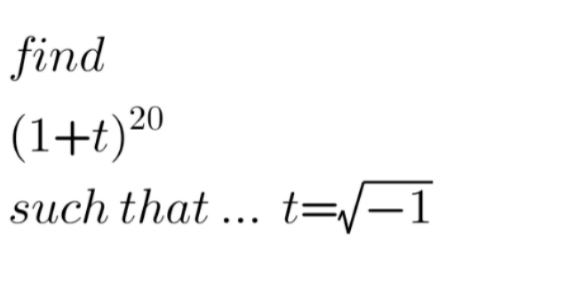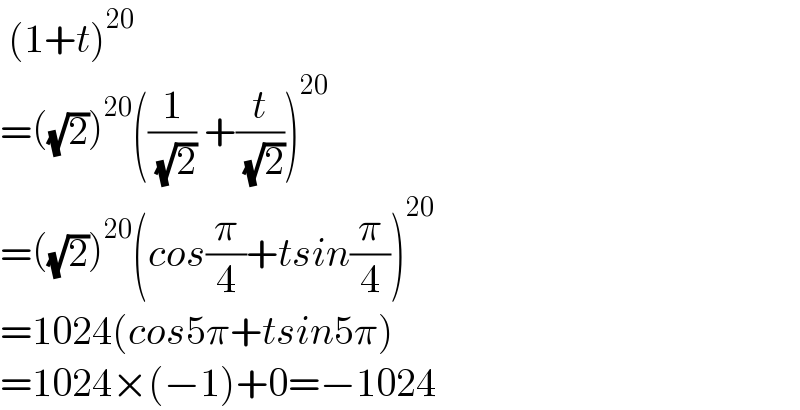
Question Number 194350 by SaRahAli last updated on 04/Jul/23

Answered by MM42 last updated on 04/Jul/23

$$\mathrm{1}+\sqrt{−\mathrm{1}}=\mathrm{1}+{i}=\sqrt{\mathrm{2}}×{e}^{\frac{\pi}{\mathrm{4}}{i}} \\ $$$$\Rightarrow\left(\mathrm{1}+{t}\right)^{\mathrm{20}} =\mathrm{2}^{\mathrm{10}} ×{e}^{\mathrm{5}\pi{i}} =−\mathrm{1024}\:\checkmark \\ $$$$ \\ $$
Answered by som(math1967) last updated on 05/Jul/23

$$\:\left(\mathrm{1}+{t}\right)^{\mathrm{20}} \\ $$$$=\left(\sqrt{\mathrm{2}}\right)^{\mathrm{20}} \left(\frac{\mathrm{1}}{\:\sqrt{\mathrm{2}}}\:+\frac{{t}}{\:\sqrt{\mathrm{2}}}\right)^{\mathrm{20}} \\ $$$$=\left(\sqrt{\mathrm{2}}\right)^{\mathrm{20}} \left({cos}\frac{\pi}{\mathrm{4}}+{tsin}\frac{\pi}{\mathrm{4}}\right)^{\mathrm{20}} \\ $$$$=\mathrm{1024}\left({cos}\mathrm{5}\pi+{tsin}\mathrm{5}\pi\right) \\ $$$$=\mathrm{1024}×\left(−\mathrm{1}\right)+\mathrm{0}=−\mathrm{1024} \\ $$
